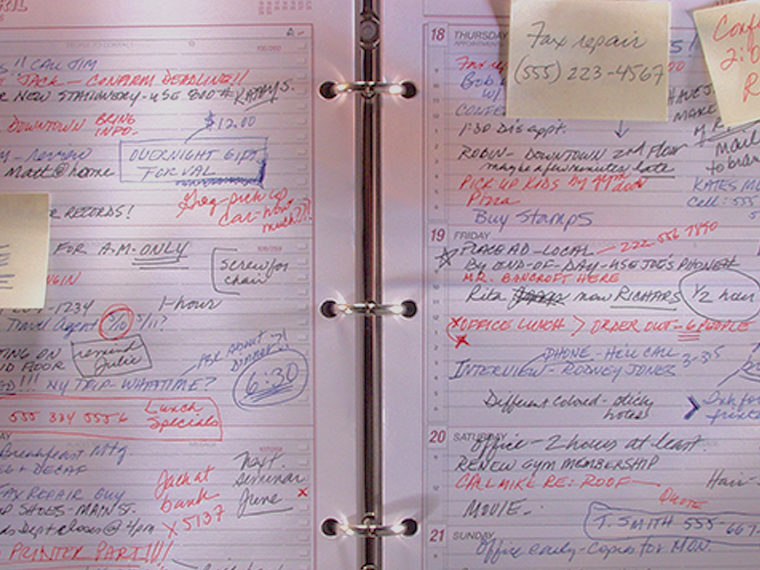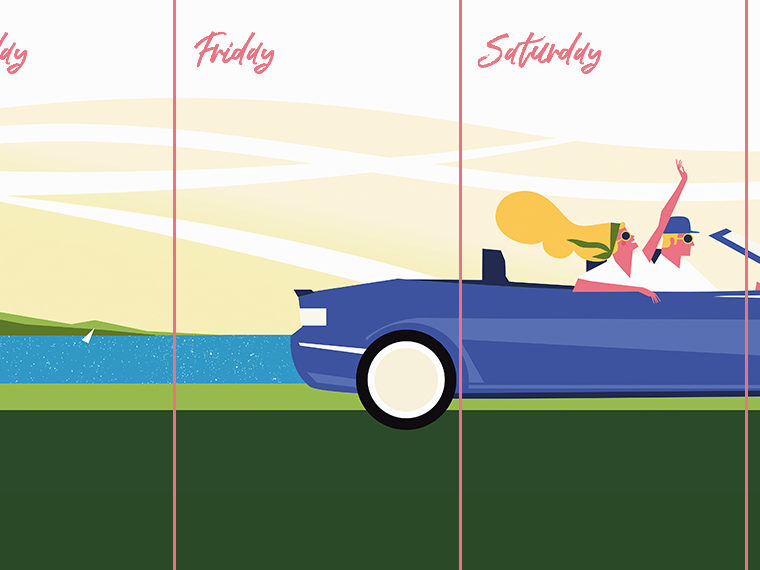A compilation of research offers a compelling cheat sheet for how to get more out of time
The fixed resource of time seems to be persistently in short supply. Have you ever exclaimed you needed less time to polish a project, spend with the kids or get the chores done so you can enjoy some down time?
As if.
Current Opinion in Psychology took a deep dive into what academia has learned over the past decade or so about how we manage, view and spend time. Edited by UCLA Anderson’s Cassie Mogilner Holmes and Sanford DeVoe, 23 review articles serve up hints for how we can get more out of the time we have.
Opt In to the Review Monthly Email Update.
Here’s a sampling — this will take you five minutes to read — of time-related hacks to improve your life, culled from the journal’s special issue as well as separate research by UCLA Anderson faculty members, many of whom are circling around the study of time.
- Fall short on a goal? There’s always a good time to try again.
UCLA Anderson’s Hengchen Dai and Claire Li run through research that found that simple time markers — the start of a week, a semester, a birthdate — can serve as effective “fresh starts” toward achieving a goal. - Dealing with a difficult experience? Give it time and it can help you glean more from life.
The University of Minnesota’s Kathleen D. Vohs and Stanford’s Jennifer L. Aaker and Rhia Catapano explain research that suggests a counterintuitive upside to bad experiences: Over time, the processing of those experiences can ultimately have a positive effect on well-being. While acknowledging that “negative experiences can bring pain and suffering,” the authors suggest in their review of the research that “difficult and aversive circumstances may have the side benefit of aiding meaning in life.” - Need some extra motivation to save more for retirement? Focus on the passage of time.
UCLA Anderson’s Hal Hershfield explains research — including some of his work — that has identified a tendency to view our future older self as a stranger. Making an effort today to connect to our future selves boosts our desire to save more for retirement.. - Open to being a bit happier? Prioritize time over money.
A review article penned by Mogilner Holmes shares time-related hacks for greater happiness, including buying experiences rather than things and giving some of your time away (volunteering), which can actually make you feel like you have more time, not less.
UCLA Anderson Ph.D. student Alice Lee-Yoon and Harvard’s Ashley V. Whillans explain research — including work by Anderson’s Hershfield and Mogilner Holmes — that finds our self-reported level of happiness is higher when we prioritize time over money.
For example, people who value time over money tend to be more socially focused, putting more effort into volunteering and pro-environmental behaviors. People who identify with a time-over-money approach to life reported more positive emotions, less frequent downer emotions and a greater level of life satisfaction than people who identify with prioritizing money over time.

- Stuck in the past? You’d be happier if you focused forward.
Texas Christian University’s Abbie J. Shipp and Concordia University’s Brad Aeon report on research that finds “past-focused individuals experience lower well-being, especially depression and dissatisfaction with life” and that “past focus relates positively to neuroticism and trait anxiety.” - Do you watch the clock? Your time style says plenty about you.
Anne-Laure Sellier of HEC Paris and Yeshiva University’s Tamar Avnet walk through the personality characteristics of people who organize their life around the clock or calendar, and those who focus on completion of a goal or task, regardless of how much time it may take.
Watching the clock can be helpful if you’re prone to procrastination. Focusing on the task and not the clock — what researches call an event-focus — may be more ideal when the goal is the quality of the end product: Give yourself as much time as is needed to complete the task successfully.
Finding the right balance of these two distinct approaches is a challenge for management. Hitting scheduled deliverables involves a focus on clock-time, but the quality of that work may benefit from the event-time approach. And where you fall says something about your worldview. “Clock-timers believe that things happen in the world due to chance or fate, significantly more than event-timers. This also means that clock-timers believe that they have less control of their own destiny compared to event-timers,” write Sellier and Avnet. - Want to make better retirement planning decisions? Pick the right frame for marking the passage of time.
Delaying when you start your Social Security retirement benefit will produce a much higher monthly check. Yet most retirees don’t wait for the biggest possible payout. Research by Duke University’s John Payne and Namika Sagara, UCLA Anderson’s Suzanne Shu and Columbia’s Kirstin C. Appelt and Eric J. Johnson suggests that how we frame our take on life expectancy could compel us to consider claiming later. People who were asked what age they expected to die by gave an answer that was 10 years younger than people who were asked how long they expected to live: 75 vs. 85. The longer you think you will live ups the odds you may be willing to consider delaying your Social Security start date. - Waiting to open that special bottle of wine? Um, there’s no time like now.
UCLA Anderson’s Shu and Wharton’s Marissa Sharif explain that our pursuit of the perfect time to consume a valued possession often backfires and causes us to miss the opportunity to enjoy ourselves here and now. - Too time-crunched for a vacation? Try a vacation mindset this weekend.
UCLA Anderson’s Colin West, Mogilner Holmes and DeVoe found that people who spent the weekend in vacation mode arrived back at work happier on Monday.
Featured Faculty
-
Cassie Mogilner Holmes
Professor of Marketing and Behavioral Decision Making; Donnalisa ’86 and Bill Barnum Endowed Term Chair in Management
-
Sanford E. DeVoe
Professor of Management and Organizations, Area Chair
About the Research
Mogilner Holmes, C., & DeVoe, S.E. (Eds.). (2019). Time [Special issue]. Current Opinion in Psychology, 26.






